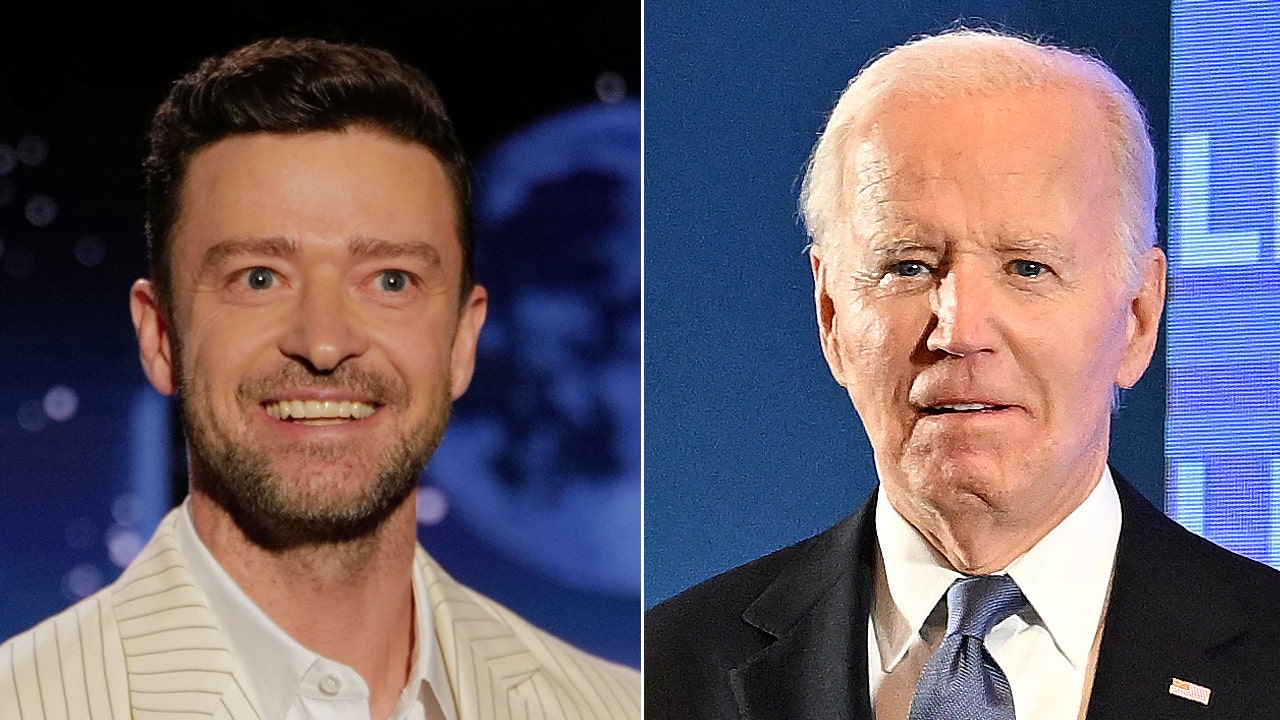Besides being Soderberghy — that stylish combination of charm and chill — the two shows don’t have much in common. “Command Z” commits to a pleasantly archaic form, the “webisode,” and accordingly stays light on its feet, cynical but unserious even in the post-apocalypse. And “Full Circle,” despite a twist that spares the kidnapped teen at its center, sinks under the weight of whatever it’s trying to say about borders and bribery and the wealthy and the poor because what it’s ultimately interested in is the private agony of individual conscience.
What these two shows share is a strangely choked approach to political commentary. Both seem to feel massively burdened by the need to Say Something, and both retreat before anything of significance is said.
Soderbergh can beautifully execute any genre he chooses, and while “Full Circle” is the kind of noir-inflected procedural you’ve seen many times before, the very particular world he builds here deserves praise: Both the Guyanese community in Queens and the unhappy millionaire family come into focus with astonishing speed. The scope of the story keeps the pace brisk, but if our characters are introduced gesturally and efficiently, the sketches, at least initially, are good ones.
“Full Circle” begins when a Guyanese crime boss, Savitri Mahabir (CCH Pounder), decides, while mourning yet another loss, that a family curse is responsible. Lifting it will require, among other things, the production of a large circle in Washington Square Park and the kidnapping of Jared Browne (Ethan Stoddard), the teenage grandson of a dopey celebrity chef (Dennis Quaid). “Chef Jeff’s” empire is run by his daughter Sam (Claire Danes) — Jared’s mother — and her husband Derek (Timothy Olyphant).
Rather than rely on her existing networks to kidnap the child, Mrs. Mahabir asks her enforcer Gharmen (a tense, amiable Phaldut Sharma) to bring two naive boys over from Guyana and confiscate their passports until they “pay off” their debt. Those boys, Xavier (Sheyi Cole) and Louis (Gerald Jones), easily the best part of the series, join Louis’ sister Natalia (Adia), who has been “working off her debt” as Mrs. Mahabir’s masseuse while dating her ambitious, Christopher Moltisanti-type nephew Aked (Jharrel Jerome of “When They See Us”).
The kidnapping plot is a bad one, to put it mildly; cruel as well as unwise. It backfires and Mrs. Mahabir, initially one of the show’s most intriguing characters, oozing gravitas thanks to Pounder’s eerie composure, comes to seem so clownishly inept that it’s hard to believe she was ever a respected leader.
Other things are hard to believe, too, like the series of coincidences that lead the men to abduct the wrong child. And if we at first wonder what historical wrong inspired this revenge plot (or the tantalizing but disorienting close-up shots in the opening of a luxury condo resort called Essequibo), that curiosity founders, glutted. The number of connections that eventually emerge linking everyone to everyone else starts to feel like parody. By the end I was yearning for someone, anyone, outside the titular circle.
Connecting these dots and many more for us is Melody Harmony (Zazie Beetz), a brilliant but abrasive investigator for the United States Postal Inspection Service who can’t even pretend to respect her mealy-mouthed boss Manny Broward (Jim Gaffigan). Broward naturally refuses to let her take the case, so Harmony just as predictably works it in her spare time. Beetz earns her stripes here, juicing every weird info-dump she has to deliver for maximal character work. She’s particularly good opposite Danes, whose character Sam becomes Harmony’s main target.
But not even Beetz can explain the original sin at the show’s core, or the exact nature of Sam’s culpability.
It’s heavily implied from the beginning that the Browne family got rich in Guyana through shady means and that Mrs. Mahabir was somehow engaged in spiritual payback (she shows no interest in the ransom money she demands). The truth turns out to be weirder and blurrier; neither Sam’s crime nor its consequences ever come into clear focus.
Because Sam is the culprit, her mounting guilt over whatever she did (it involved routing numbers and bribery) is significant. When a redemption arc is in the offing, it’s nice to understand the sins being expiated. There’s nothing wrong with humanizing your villain, or with a redeemed sinner, but “Full Circle,” perhaps countering a knee-jerk tendency to make rich White people evil in contemporary narratives, Uno-reverses itself back into highly conventional, even reactionary tropes.
To be blunt: When you set out to tell a fictional story about Black immigrants kidnapping a White American child, some disruption of the surface narrative is expected.
Not so here. In “Full Circle,” the White wrongdoer has a conscience: she suffers agonies over the obscure financial crimes she committed with loads of mitigating circumstances. Meanwhile, the Black wrongdoer’s motives only get more and more monstrous, less sympathetic, less comprehensible. By the end of the series (critics received all six episodes) Mrs. Mahabir is impossible to understand.
Maybe Soderbergh, who has a contrarian streak, wanted a counterpoint to all the “eat the rich” messaging. If so, mission accomplished: “Full Circle” is the anti-“Succession.” The director has built a world where even “Chef Jeff,” the grubbiest Browne, puts up $300,000 as ransom to save a stranger’s child without thinking twice; where rich White people are always at least decent and often morally aspirational, trying to do the right thing even when they fail.
Command Z,” which was created by Kurt Andersen, Sam Lowry, and Larry Doyle, suffers from a similarly permissive approach to the rich (whom the series are ostensibly taking to task). Or at least an inability to escape their frame of reference. A billionaire, Kerning Fealty (Michael Cera, delightfully weird), appears in 2053 to have turned against his fellow billionaires for nearly killing the planet. Fealty, an Elon Musk type who was famous for the fact that nothing he invented worked, uploaded himself to the cloud before dying on a mission to Mars. He (or rather, the surviving AI version) proudly informs the three agents he has recruited — Sam (Roy Wood Jr.), Jamie (JJ Maley) and Emma (Chloe Radcliffe) — that he has invented a time machine. The agents will use the wormhole to access July 17, 2023, and convince the powerful to do things differently. Using this time machine, which is disguised as “a high-end dryer,” requires that they drink a psychedelic liquid while listening to “Theme from Mahogany (Do You Know Where You’re Going To).”
It’s an amusingly lo-fi setup, and if alarm bells go off at the levels of mediation separating us from the “action,” the show never really directs or channels those doubts. Sure, it’s possible the agents aren’t undertaking any operations at all, just getting high on psychedelic juice, and that the invention by the guy whose inventions all failed doesn’t work, and that the AI reports he supplies on how much “improvement” they achieved after every mission are hooey, but the show doesn’t explicitly explore those possibilities. The billionaire’s deception (and there is one) turns out to be far more basic.
Jamie, the youngest, is an idealist and ready for anything. Sam, the oldest, wants to use time travel to kill troublemakers, when he isn’t asking about vacation and compensation. Emma is the trio’s ostensible cynic. It’s a problem for the series (and for the viewer trying to figure out which parts of this, if any, are trustworthy) that she’s actually rather credulous.
With varying success, the agents tackle everyone from oil barons to Wall Street jerks to scummy televangelists to an Alexandria Ocasio-Cortez figure (played by “Succession’s” Zoe Winters), whom they need to convince to embrace nuclear power.
The aesthetics of “Command Z” are marvelous, as are details that drive home this disheveled vision of the future: The agents loll in non-matching office chairs as they harangue Fealty — who takes insubordination surprisingly well — from a dim and dingy room accessible via a spiral staircase. The only signs of the mess outside comes through bangs, flashes of light, and the occasional spray of blood on the yellow suits they wear outside.
There are good episodes, but the series as a whole doesn’t so much end as trail off. That the agents do make some minuscule, incremental progress, just as the “evil” billionaire said they would, suggests more overlap between what Fealty says and the truth than I expected there to be. And more optimism. Fealty, a bit of a “great and powerful Oz” figure, gets redeemed (kind of). The agents travel back in time (apparently). But the lack of real clarity on any of these points — coupled with the absence of any objective guidance as to what’s actually happening save for what we’re told by the sketchy billionaire himself, who explains that he’s messed with everyone’s memories and installed false ones, but it’s all transient, trust him — seems like a pretty dark ending for a series that is supposed to be at least somewhat hopeful.
Unless, as in “Full Circle,” we’re supposed to take some humanistic comfort in the story of a rich malefactor’s repentance and whatever Scrooge-like experience, vestige of moral ambition, “influencer,” investigator, or dog led them to reflect and (privately, of course) transform.
Full Circle premiered July 13 on Max with two episodes. Subsequent episodes will air two at a time on July 20 and July 27.
Command Z premiered July 17 on Extension765, where all eight episodes can be purchased for $7.99.















































